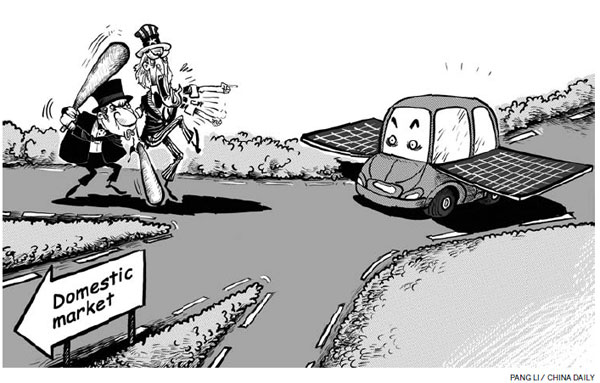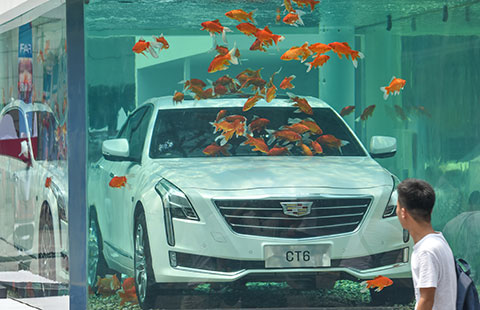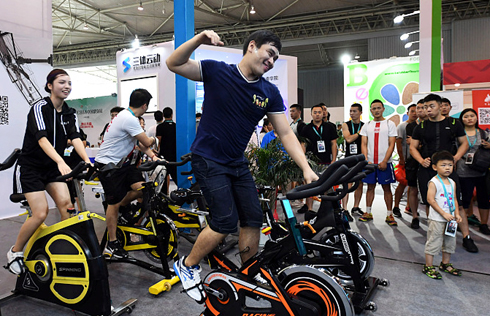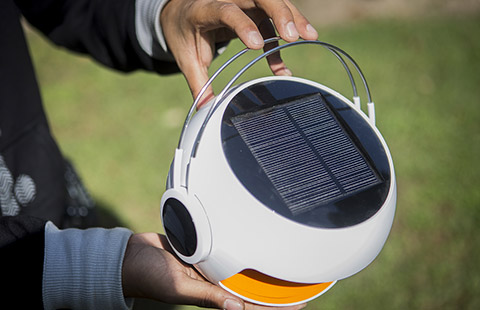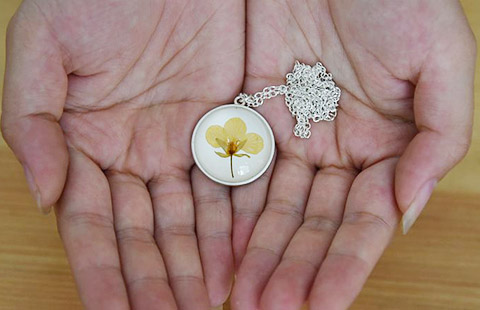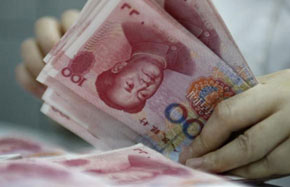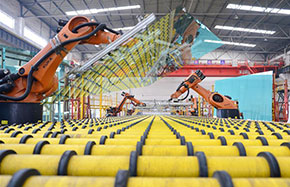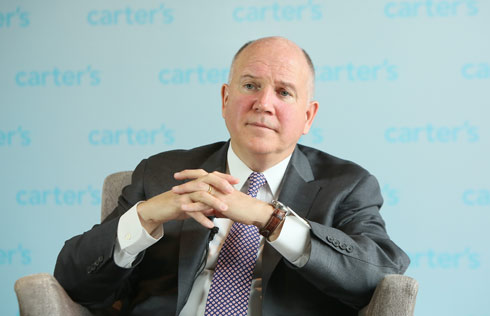Solar products heat up dispute
The punitive tariffs imposed by the European Union on China-made solar products reflect the bloc's inherent defects and puts in doubt its intention to embrace sustainable development.
Judging from the chaotic situation in the EU, it is hard to fathom the intention of its anti-dumping and anti-subsidy investigations into Chinese solar panels. Is it to provide its low-efficient solar industry with the umbrella of trade protectionism? Or, is it meant to pressure China into making concessions on other fronts?
Some people speculate that the action is meant to force China into lowering tariffs on the luxury goods and agricultural products it imports from the EU. But such speculation doesn't make much sense.
Given that the EU has a significant trade deficit with China, it should try to capitalize on its large industries that enjoy a comparative advantage over China, instead of using its agricultural and luxury goods to boost its exports to China and revitalize the bloc's economy.
Of the $212.06 billion worth of goods that China imported from the EU last year, agricultural products accounted for only about $6.55 billion, or about 3 percent of the total. The percentage of luxury goods in the total imports, too, was small. So can an increase in the export of just agricultural and luxury products to China revitalize the EU economy?
The EU's probe into Chinese solar products involves 21 billion euros ($27 billion), making it the largest anti-dumping case of its kind. This will have an impact on tens of thousands of jobs in China. And if the EU makes the punitive tariffs permanent, it will hurt China-EU trade and political ties. Since the case is serious, the EU should have made coordinated efforts and sought the opinions of all its member states before ordering the investigation.
In fact, the majority of EU member states did not support the decision initiated by the European Commission, which shows that the investigation is not in the interest of the EU as a whole and is bound to be the cause of further trouble.
Countries like the United Kingdom, Germany and the Netherlands publicly rejected the punitive tariffs on Chinese solar panels. German Chancellor Angela Merkel even told journalists that Germany would make every effort to prevent the EU from imposing tariffs on Chinese solar product companies and forestall a China-EU trade war. Only France, Italy, Lithuania and Portugal supported the EC's decision to launch a probe while 18, or two-thirds, of the EU member states opposed it.
But EU Trade Commissioner Karel de Gucht attributed the voting result to pressure from China and imposed tariffs on Chinese solar panels for six months until December. The EU member states will vote again in December to decide whether the tariffs should be made permanent.
The Chinese solar industry has taken up more than 60 percent of the world's market share in just five years. The growth in China's solar industry is the result of efficiency and high productivity. But now the EU action threatens to derail this growth, which will ultimately also harm the bloc's solar industry.
- China, EU 'goodwill' voiced in solar row
- The solar-panel ball is in the EU's court
- Construction of solar house starts at Peking University
- Jiangxi promotes solar panel installation for residents' homes
- Chinese solar panel makers tap into Africa
- Netherlands opposes EU duties on Chinese solar panels: FM




